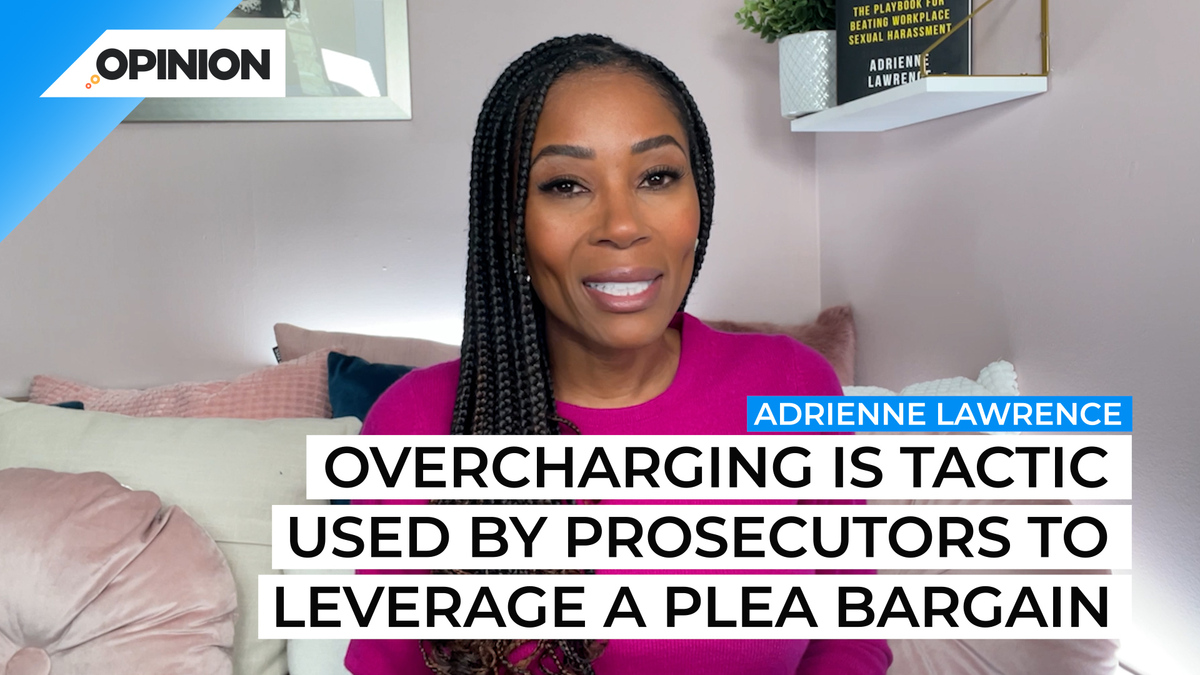
Commentary
-
Our commentary partners will help you reach your own conclusions on complex topics.
Alec Baldwin seems to have banked an early win in his involuntary manslaughter case. But this win is not indicative of the strength of his case as much as it reflects in justices built into the system that apparently, even a wealthy white actor couldn’t escape. Yeah, so many of us were all shocked at the close of January, beginning of February, when New Mexico prosecutors first charged Baldwin for that on-set fatal shooting of cinematographer Halina Hutchins back in October of 2021. Now that shock wasn’t so much because Baldwin was actually charged. And he was charged with two counts of involuntary manslaughter, because well, he was the producer on the film. And also he was the one that fired the gun that killed Hutchins. Well, what seemed to really shock me was that prosecutors added a firearm enhancement on to the charge, carrying a mandatory five-year prison sentence.
Now, that five years otherwise would have hovered around 18 months. Now that enhancement on one of the charges seemed pretty extra, and it clearly was definitely extra. That would explain why prosecutors pulled that enhancement earlier this week. As Baldwin’s attorneys argued in court, the prosecutors should not have brought charges under that enhancement statute, because it didn’t even exist until January of 2022. Yeah, that was months after the shooting. So said another way, the enhancement wasn’t the law when Baldwin killed Hutchins, and also that enhancement, it was not retroactive, either. So basically, the prosecutors tried to apply a law to Baldwin despite knowing good and well that it did not and could not apply to him. That is shady.
And of course the prosecutor’s office wouldn’t admit that they were trumping up charges on Baldwin, instead claiming that the enhancement charge was being dropped to avoid further litigious distractions by Baldwin and his attorneys, adding that the prosecution’s priority is securing justice, not securing billable hours for big city attorneys. Now I am no fan of Alec Baldwin and I do find it loathsome that he’s moving forward with filming “Rust.” Even so, I am a fan of justice. How often do prosecutors unnecessarily tack on charges to scare defendants?
Overcharging is a well-known tactic used by prosecutors to leverage a plea bargain, or let’s call it what it is, to coerce a guilty plea. Throwing charges against a wall and seeing what sticks is an abuse of power that can really harm defendants, particularly those from marginalized backgrounds. You know, people who don’t have the resources to pay big-city attorneys to fight back, but are forced to rely on the already-strained public defender’s office.
Overcharging only furthers mass incarceration, funneling more marginalized people into a system that hurts communities and hurts the innocent. Prosecutors are supposed to be the gatekeepers of the criminal justice system. When gatekeepers abuse their power, there can be no justice. Now fortunately for Baldwin, it’s more likely that justice will be done in his case, because he has the economic means to hire the best legal counsel who will advocate on his behalf and challenge ridiculous charges like this sentencing enhancement. But not everybody has those means. Actually, most of us don’t. We’re either relying on prosecutors to be ethical in their charging decisions, to not abuse the power that they have, not to make a statement or to garner media attention.
Those New Mexico prosecutors, they know that the world is watching so why they would use this moment as an opportunity to sow further doubt in the criminal legal system is truly beyond me. But one thing I do know however, is that every defendant deserves better…even the wealthy white ones who can afford to fight back.
-
Trump-Vance ticket will implement nationwide abortion ban
Donald Trump recently accepted the Republican nomination for president and named Sen. J.D. Vance, R-Ohio, as his running mate. Vance has previously advocated for strict anti-abortion laws, in sharp contrast to Kamala Harris, the leading Democratic candidate, who went on a nationwide tour to mobilize pro-choice voters. Watch the above video as Straight Arrow News…
-
End of Chevron is an open invite for corporate corruption
On June 28, the U.S. Supreme Court overturned 40 years of “Chevron deference” in a landmark ruling that experts say will cause a “legal earthquake.” The 6-3 conservative opinion upends a long tradition of relying on neutral expertise to interpret and execute laws and regulations. Broadly speaking, the ruling empowers judges and corporations at the…
-
American democracy cannot survive if Trump wins
Public alarm over the chances of democracy surviving in America has reached a new high-water mark in the wake of the Supreme Court’s July 1 ruling in Trump v. United States, where the court expanded presidential powers for all current and future U.S. presidents. Among other things, the court may have granted U.S. presidents the…
-
Talk to your kids about sextortion
The FBI is warning Americans of a growing threat called sextortion, where online predators pose as young, single individuals to lure their victims, primarily single teenage boys, into a blackmail trap. After soliciting sexual photos or videos of the victim, the predator threatens to release the images or videos unless the victim sends money and/or…
-
Louisiana’s Ten Commandments law proves Gov. Landry is corrupt
On June 20, GOP Gov. Jeff Landry of Louisiana signed into law a new bill that requires all public Louisiana school and university classrooms to display a poster-sized printout of the Bible’s Ten Commandments. The law violates existing legal precedents regarding the First Amendment and is expected to be challenged in the Supreme Court, although…
Latest Opinions
-
 U.S. Department of Defense
U.S. Department of Defense
Congress still trying to figure out how to reduce wasteful military spending
-
 DVIDS
DVIDS
US Navy, Air Force making waves with new weapons at RIMPAC
-
 Getty Images
Getty Images
Israeli PM Netanyahu meets with Trump at Mar-a-Lago
-
 Getty Images
Getty Images
Growing US nuclear power resurgence reaches the nation’s heartland
-
 Getty Images
Getty Images
Beer from the sun, other solar thermal projects get government funding
Popular Opinions
-
In addition to the facts, we believe it’s vital to hear perspectives from all sides of the political spectrum.


